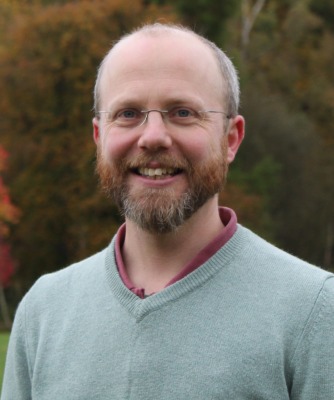Prof Joe Briscoe
MSci (Hons), PhD, FHEA, CSci, MIMMM, MInstP
Professor of Energy Materials and Devices
Director of the Centre for Sustainable Engineering
Engineering 113, Mile End
| Feedback/ support hours: |
Wednesdays 12-1 in person (Eng 113) or online (call on Teams) |
| Expertise: | My group's research is focused on the use of thin films and nanostructured materials for renewable energy applications, including: semiconductor photocatalysts, photoelectrocatalysis (PEC) & solar fuels; photovoltaic devices; ferroelectrics for solar energy conversion; piezoelectric energy harvesting. We have a particular interest in the use of polar (ferroelectric & piezoelectric) materials and nanomaterials in these devices with expertise in solution-based synthesis of materials, material characterisation and device fabrication and testing, including flexible devices. |
| Research Centre: | Sustainable Engineering |
| Affiliations: | FHEA, CSci, MIMMM, MInstP |
Brief Biography
Prof Briscoe's research is focussed on investigating a range of new materials, structures and material combinations for use in nanostructured, low-cost photovoltaics (PVs), photocatalysis/photoelectrocatalysis (PEC) and piezoelectric energy harvesting, with a particular focus on the use of polar (ferroelectric, piezoelectric) materials within these devices. In 2020 Prof Briscoe was awarded a prestigious ERC Consolidator Grant to develop ferroelectric-photovoltaic/photocatalyst nanocomposites as a new route to high efficiency solar energy devices. In addition, in 2022 he spun out the company 'AeroSolar' to commercialise a novel post-processing approach to enhance the efficiency and stability of halide perovskite photovoltaics.
Prior to gaining an academic position at QMUL in 2017 he worked as a postdoc on the development of a new type of nanostructured piezoelectric energy harvesting device using ZnO nanorods, and the investigation of ferroelectric materials as novel photocatalysts for the production of fuels and the degradation of pollutants. He also instigated and worked on a number of projects developing emerging photovoltaic technologies, such as hybrid organic-inorganic lead halide perovskites, organic photovoltaics (OPVs) and dye-sensitised solar cells (DSSC).
Prof Briscoe completed an MSci at the University of Durham in Natural Sciences, which included researching the doping of ceramic zinc oxide. Following this he undertook a PhD at Cranfield University in nanostructured photovoltaic devices.
Prior to gaining an academic position at QMUL in 2017 he worked as a postdoc on the development of a new type of nanostructured piezoelectric energy harvesting device using ZnO nanorods, and the investigation of ferroelectric materials as novel photocatalysts for the production of fuels and the degradation of pollutants. He also instigated and worked on a number of projects developing emerging photovoltaic technologies, such as hybrid organic-inorganic lead halide perovskites, organic photovoltaics (OPVs) and dye-sensitised solar cells (DSSC).
Prof Briscoe completed an MSci at the University of Durham in Natural Sciences, which included researching the doping of ceramic zinc oxide. Following this he undertook a PhD at Cranfield University in nanostructured photovoltaic devices.







